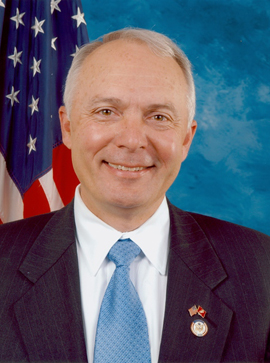
According to a national unemployment report released in January, 5.6 million Americans have been out of work for 27 weeks or longer. Seven months without a job can feel like a lifetime, especially in today’s economy. These individuals are often trapped in a vicious cycle – the longer they are unemployed, the more difficult it is to find their next job. Over time, many lose skills vital to success in the workplace.
Reducing the regulatory burdens on American businesses, reining in the size and cost of the federal government, and adopting a more competitive tax system are all part of Republicans’ strategy to encourage stability and growth in our economy. However, we must also take steps to better equip today’s workers to compete for tomorrow’s job opportunities.
For decades, the federal government has administered a host of programs intended to help job seekers find the training they need. In 1998, Congress passed the Workforce Investment Act, providing workers with a network of One-Stop Career Centers to more efficiently and effectively offer employment support. These centers coordinate the efforts of at least 19 entities operating at the state and local levels and deliver services such as job searches, resume writing, career training, and adult education.
…we have an outdated workforce investment system in which employers struggle to find skilled workers, employees lack important training, and taxpayer dollars are wasted.
While the law marked an important step toward a more accessible job training system, it has been on auto-pilot since its authorization expired in 2003. Years of inaction have resulted in waste and inefficiencies. In the Winter 2011 edition of The Ripon Forum, National Taxpayers Union Foundation senior policy analyst Demian Brady noted the existence of 47 job training and employment service programs. According to the Government Accountability Office, this complicated maze of programs winds through nine federal agencies, costs taxpayers $18 billion annually, and is rarely evaluated to determine whether the programs help workers.
Consequently, we have an outdated workforce investment system in which employers struggle to find skilled workers, employees lack important training, and taxpayer dollars are wasted. This is no way to support workers during a sluggish economy, and it is certainly not an appropriate use of taxpayer money in the midst of trillion dollar deficits.
Unfortunately, President Obama has failed to provide any real solutions to address this crisis. The president’s recent endeavor to reorganize the federal government ignores the bloated bureaucracy crippling our job training programs. In fact, in a stimulus plan released last September, the president exacerbated the problem by calling for additional programs that will cost taxpayers an additional $9 billion. More government and more spending are the failed policies of the past. It is time for Congress to chart a better course.
The House Committee on Education and the Workforce is taking action to reform the federal workforce investment system. The committee held numerous hearings over the last year, listening to state officials and business leaders describe the challenges facing their workplaces and the suggestions for improvement. As a result of what we’ve learned, House Republicans are moving forward with reforms that reflect three principles critical to a successful job training system.
House Republicans are moving forward with reforms that reflect three principles critical to a successful job training system.
First, a modern workforce investment system must be leaner and more accountable. The Streamlining Workforce Development Programs Act, authored by Rep. Virginia Foxx (R-NC), consolidates dozens of duplicative and ineffective programs into four flexible funding streams. The legislation improves accountability and protects taxpayer investments by requiring an independent evaluation of programs every five years. Additionally, the bill calls for the development of common performance measures to help eliminate waste and abuse.
Second, workers must receive skills that meet the current needs of employers. A report released by the Congressional Budget Office cites a number of structural impediments hindering hiring across the country, including a “mismatch” between job openings and job seekers. Rep. Joe Heck’s (R-NV) Local Job Opportunities and Business Success (JOBS) Act will expand the role of employers in workforce investment decisions to ensure the training available fills the demands of local businesses.
Third and finally, a 21st century job training system must respond quickly and effectively to the changing needs of workers. Federal rules and mandates can stand in the way of the support an individual needs. The Workforce Investment Improvement Act, introduced by Rep. Buck McKeon (R-CA), eliminates arbitrary barriers that prevent workers from accessing training immediately and enhances flexibility in the services provided to job seekers.
As Chairman of the House Education and the Workforce Committee, strengthening job training and employment support remains a top priority for me and my Republican colleagues. Providing workers, employers, and taxpayers with a more effective, flexible, and accountable workforce investment system will help foster the long-term growth and prosperity our nation desperately needs.
Congressman John Kline represents the 2nd District of Minnesota in the U.S. House of Representatives. He serves as Chairman of the House Committee on Education and the Workforce.




